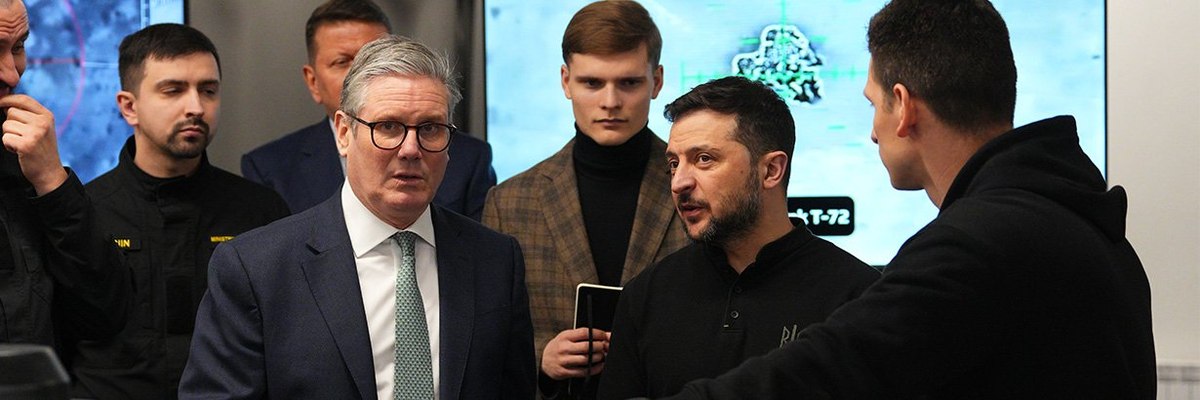A look at data from polls in December, January and February
This article was amended at 4.16pm to add additional questions from our daily poll on 17 Feb 2025
Attitudes towards a Trump-led peace deal in Ukraine, and its aftermath
With Donald Trump suggesting that talks could soon happen between the US and Russia about bringing the Ukraine war to a close, Europe – and even Ukraine itself – look set to be sidelined by the US president.
Commentators expect that Trump will not demand a full withdrawal of Russia from conquered territories, and YouGov polling in December found that 51% of Britons would react negatively to such a deal, and a poll from last week on what Europe and the UK’s approach should be in such circumstances showed that the most common answer among Britons is to discourage Ukraine from accepting any deal that left Russia in control of conquered territory, and continue to provide support.
However, this only accounted for 32% of people, with a further 20% wanting to encourage Ukraine to accept the deal (but continuing to provide assistance if it refuses), and 11% wanting to encourage Ukraine to accept the deal and withdrawing military assistance if it does now.
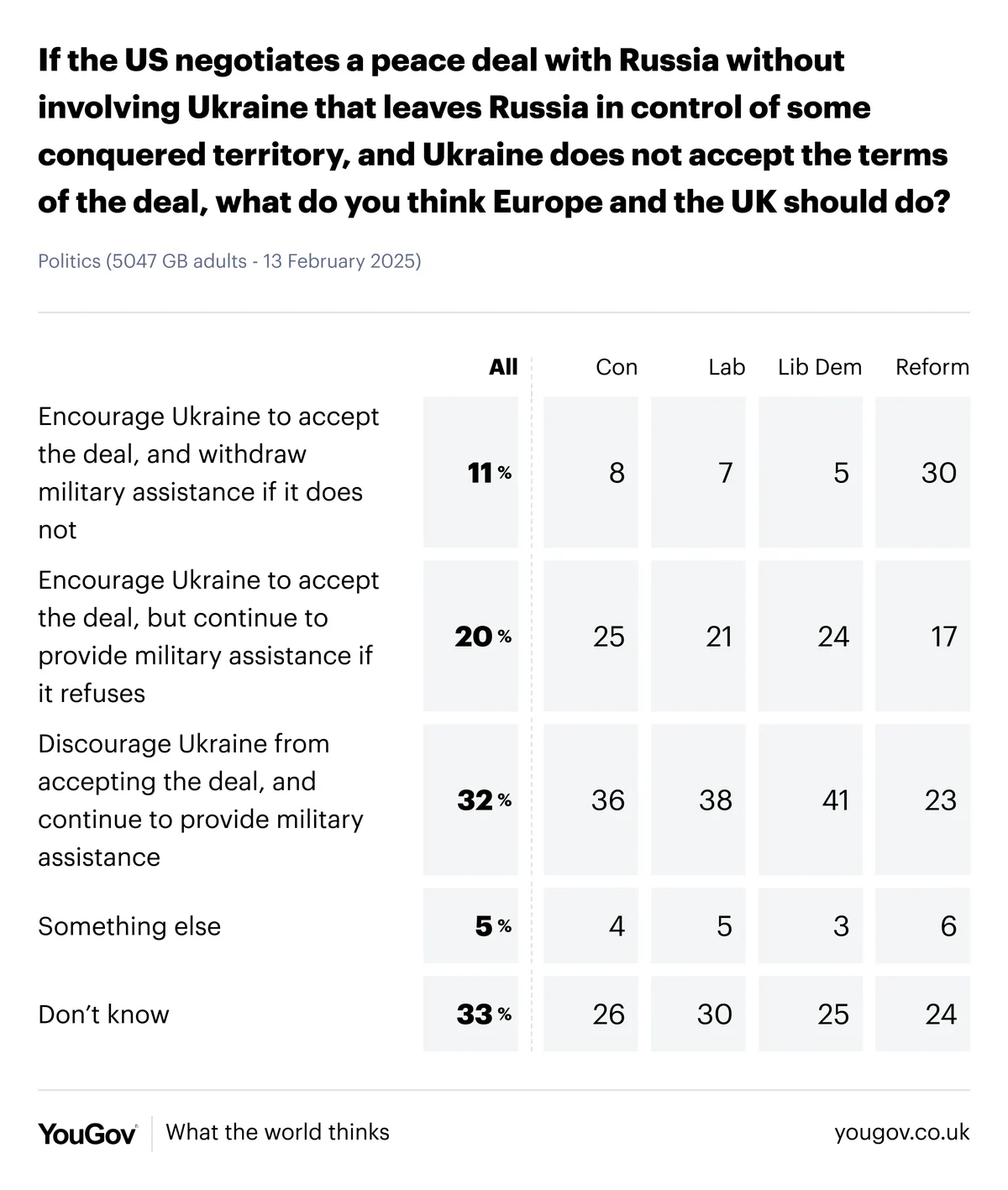
European leaders are holding crisis talks about how to respond, and Keir Starmer has said that he is willing to send British forces to Ukraine as peacekeepers in the event a peace deal is reached.
A YouGov poll in mid-January found that the majority of Britons (58%) would support sending British soldiers to Ukraine as peacekeepers, alongside soldiers from other European countries. Only 21% would be opposed to such a move.
The proposal is popular among Labour, Tory and Lib Dem voters (66-70%), but divides Reform UK voters, with 44% in favour but 45% opposed.
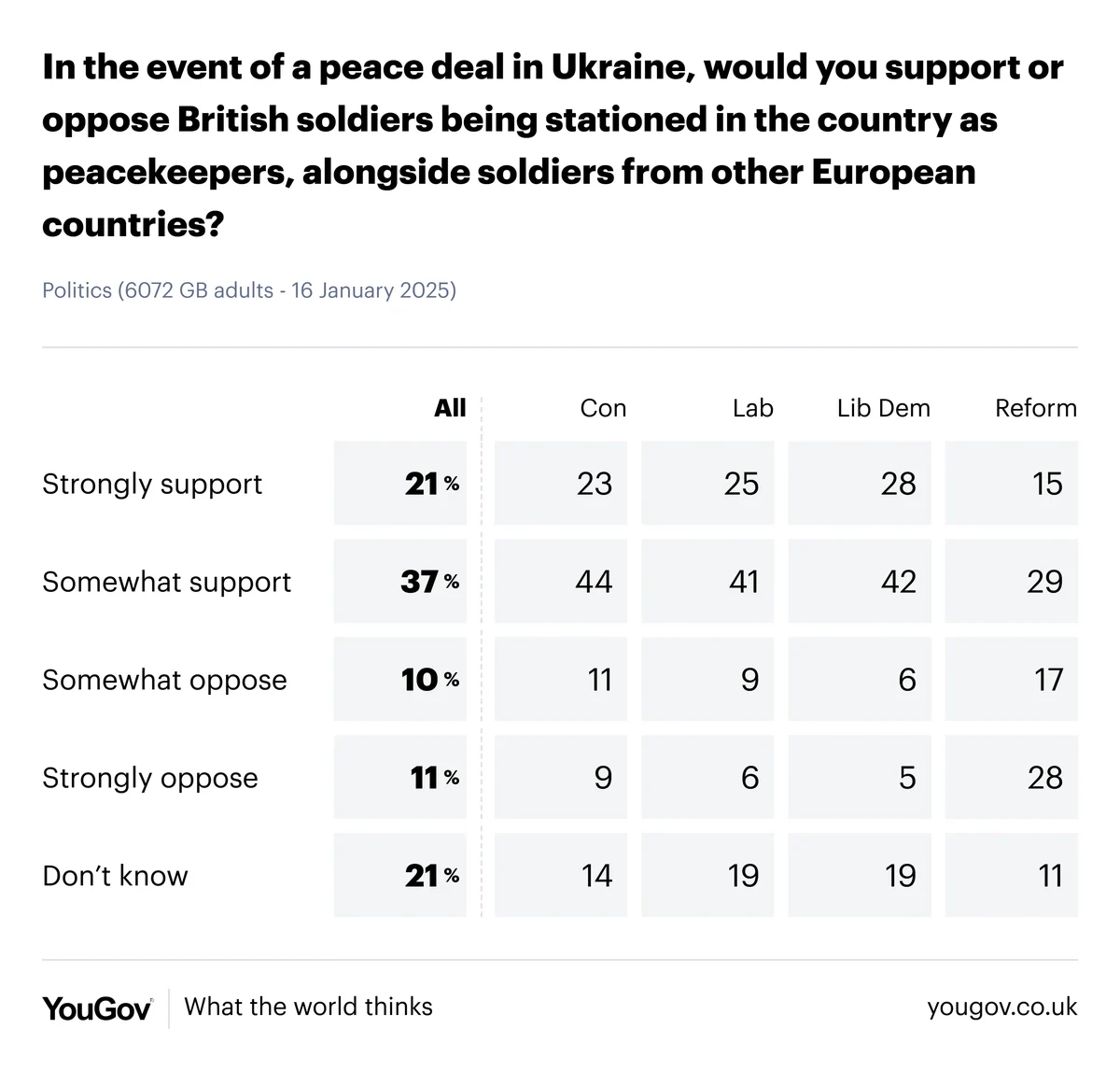
In an address to the recent Munich Security Conference, Ukrainian president Volodymyr Zelenskyy called for the creation of a European army. New YouGov polling shows plurality support for a European army that includes the UK, with 46% in favour and 28% opposed.
Most Labour voters (58%) give their backing, as do 59% of Lib Dems, while Tories are supportive by 47% to 35%. Reform UK voters are opposed, however, with 54% rejecting the idea and only 28% in favour.
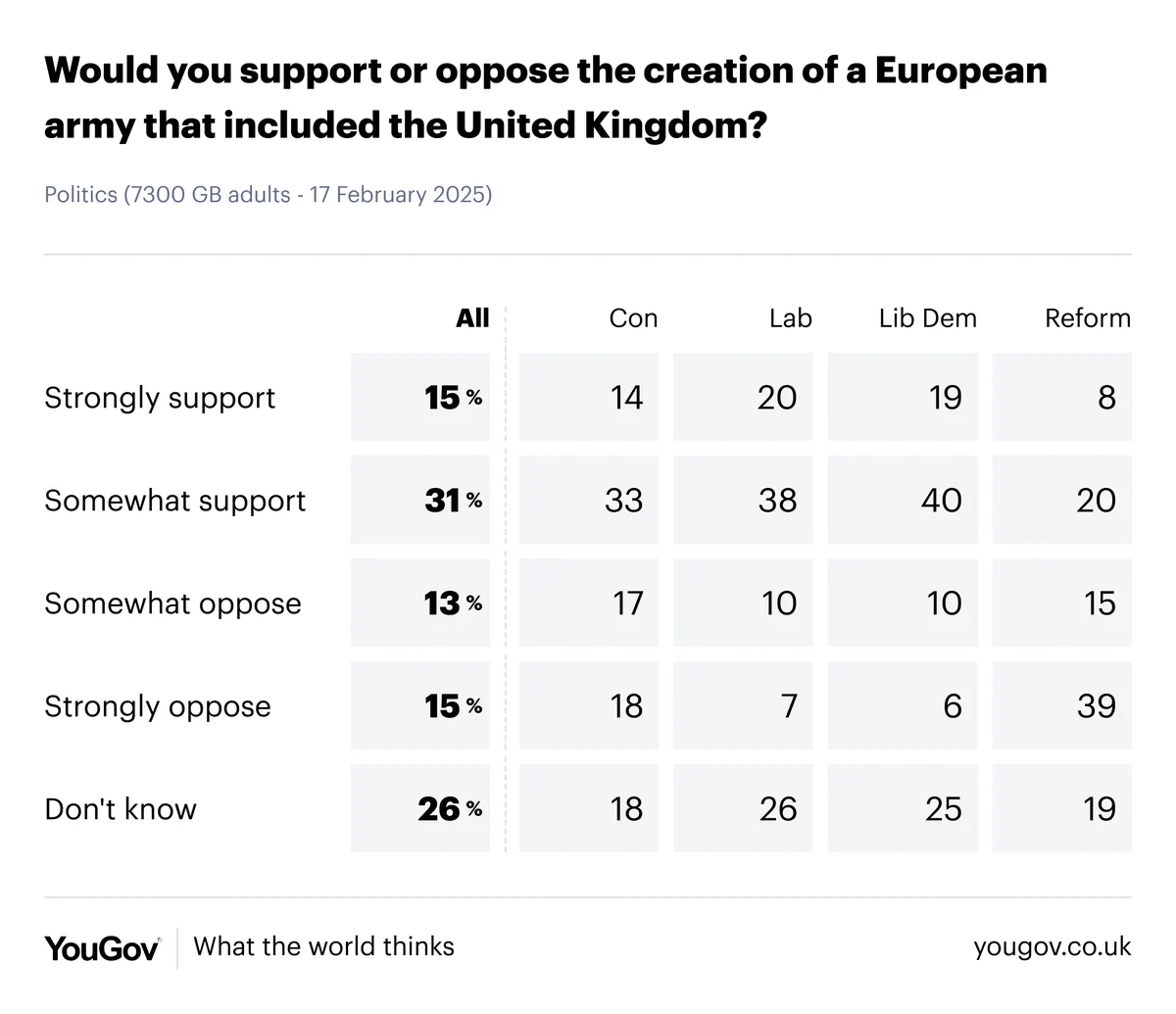
Public views on defence spending are fickle
The prime minister also said that European nations must increase their defence spending, a move the public ostensibly appear to support. A December poll found that 50% of Britons support increasing the NATO defence spending requirement to 3% of GDP, with only 21% opposed.
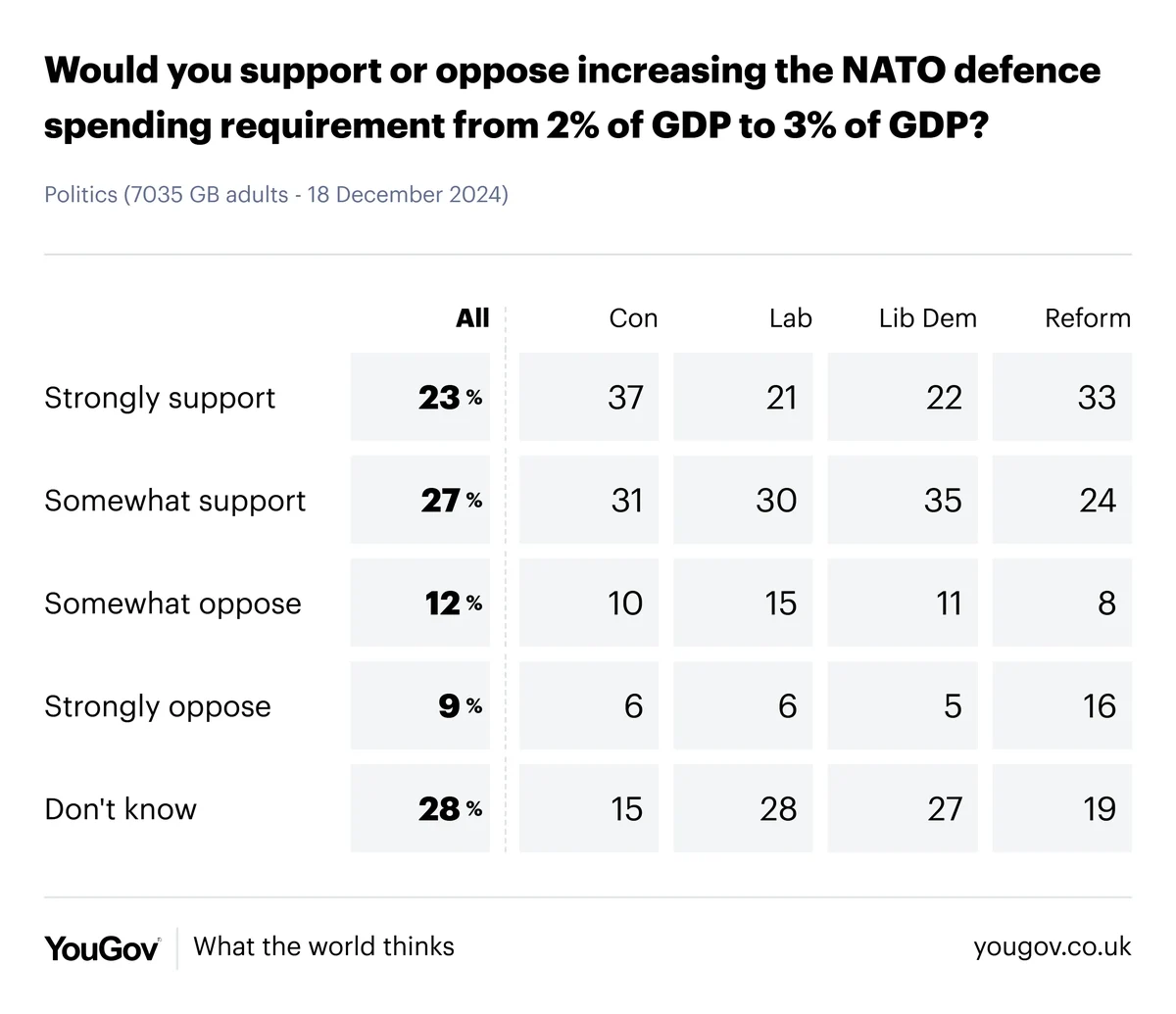
Likewise, when asked about current national defence spending levels, our December EuroTrack poll found that 40% of Britons think we are spending too little on the military, compared to 18% who think the amount we spend now is appropriate, and 13% who say we spend too much.
However, under a different question format that introduced trade-offs, this support dwindles. Asked which was more important, greater defence spending or public services spending, just 30% said it is more important to increase spending on defence even if that meant less money for public services. Slightly more (35%) say that keeping public services spending at current levels is more important, even if this means defence spending couldn’t be increased.
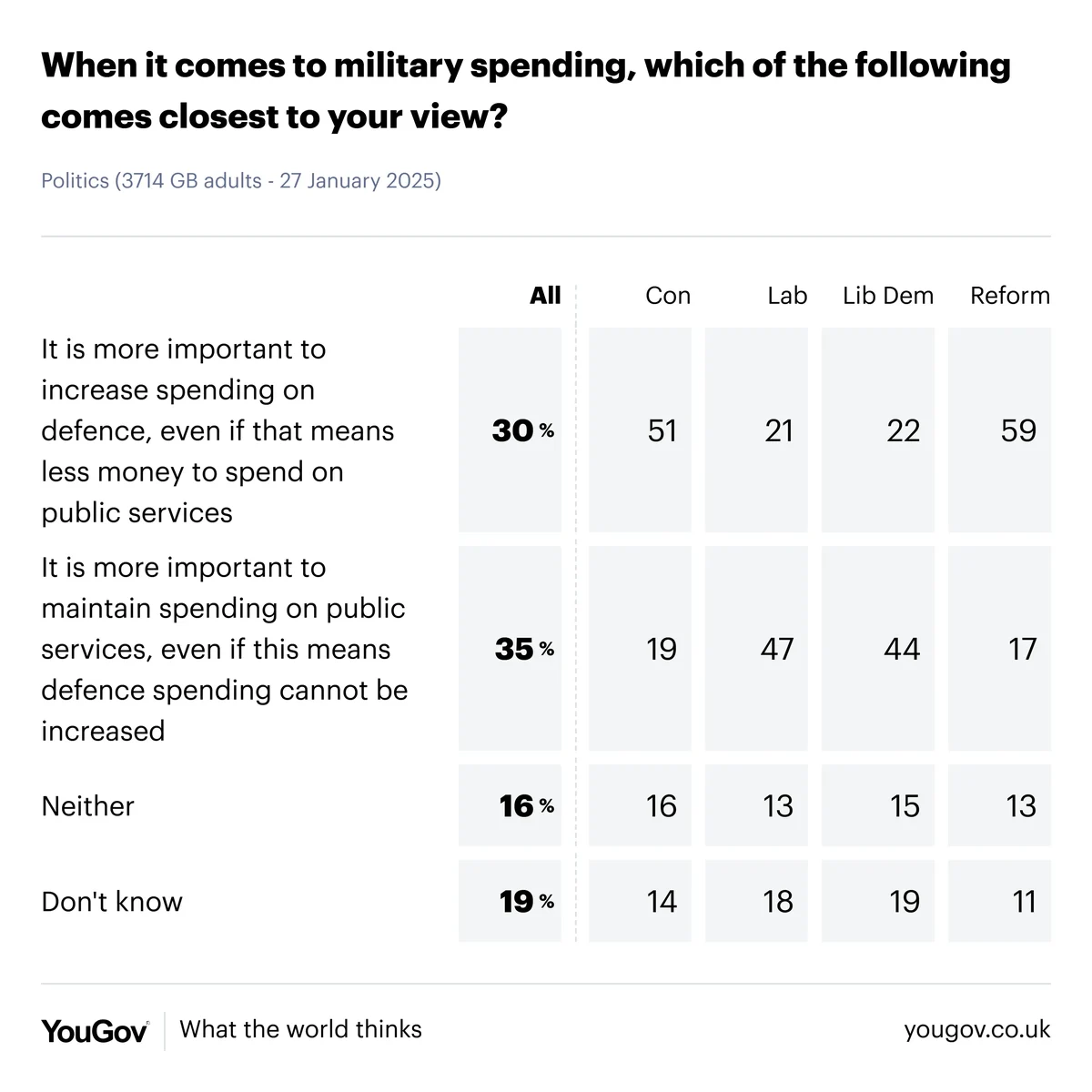
Voters divide down left/right party lines on this latter issue, with Reform UK (59%) and Tory voters (51%) backing increased defence spending, while Labour and Lib Dem voters are twice as likely to want to maintain public spending (44-47%) as they are to increase military funding (21-22%).
Likewise, a new version of this question which looked at the issue from the perspective of tax increases finds similar results. Only 30% of Britons would support increasing taxes on people like themselves in order to pay for an increase in defence spending, while 55% would be opposed.
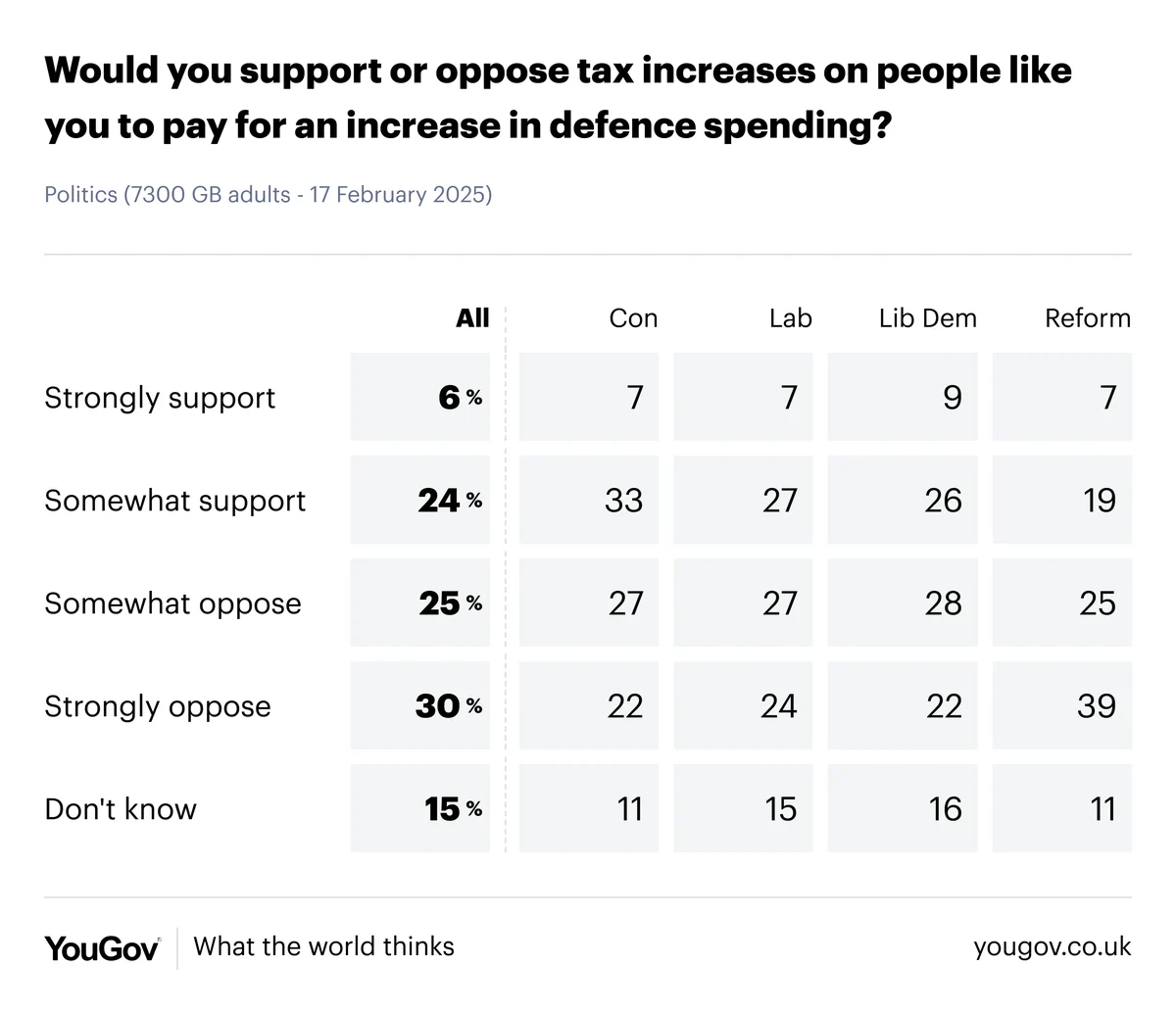
European security
US secretary of defense Pete Hegseth was at pains to make it clear that America would no longer be “the primary guarantor of security in Europe”.
Indeed, a YouGov poll last week found that the number of Britons who say that the USA has a responsibility to protect Europe military is falling; only 29% say so now, down eight points from February 2024, when the public had been evenly divided 37%/37%.
As a result, it should be no surprise that a separate poll at the start of this month also showed that the overwhelming majority of the public (72%) would support greater cooperation between the UK and the EU on defence and security. Only 12% don’t like the sound of that idea, although that rises to 38% of Reform UK voters.
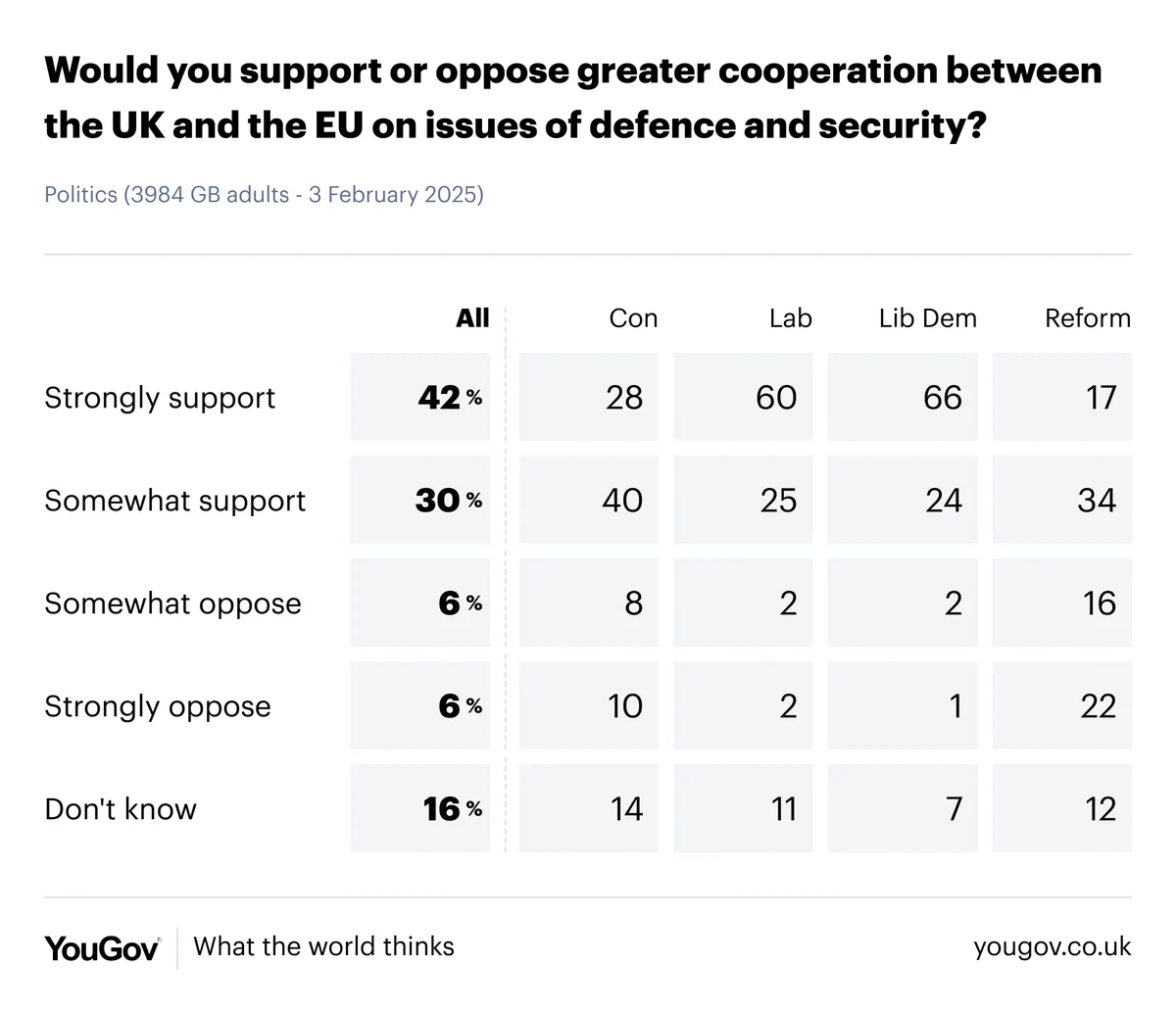
What do you think about the Ukraine war, the threats to peace in Europe more generally, and everything else? Have your say, join the YouGov panel, and get paid to share your thoughts. Sign up here.
Photo: Getty
